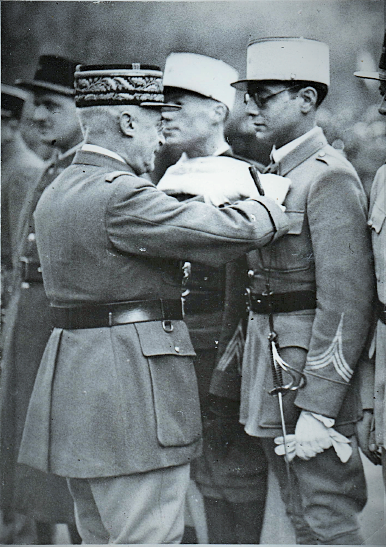The “deal of the century” is not faring well in Europe. Josep Borrell, the EU’s high representative for foreign affairs and security policy, has issued a statement in which he claimed that the Trump plan “departs from … internationally agreed parameters” and warned that Israeli annexations in the West Bank would “not pass unchallenged.” France said it welcomed President Trump’s efforts, would “study” his plan, and reiterated its commitment to a two-state solution and to international law. Germany welcomed the plan’s endorsement of a two-state solution but questioned its compatibility with international law.
In Britain, there is a wide gap between the government and the mainstream media. The British government welcomed the Trump plan and called it “a serious proposal,” encouraging Israelis and Palestinians to negotiate on its basis and insisting that it was for them to determine if the plan suits their aspirations and concerns. By contrast, most opinion makers and commentators are aghast. The Economist asserted that the plan “will not bring peace” and “may spell the end of the two-state solution.” A Guardian columnist wrote that the deal must be rejected because it allegedly goes against “countless UN resolutions, the Oslo accords of 1993, the Arab peace initiative of 2002 and the fundamental idea that Palestinians, like Israelis, have the inalienable right to self-determination.”
While Israel should spare no effort to guarantee U.S. support for the deal’s partial implementation in the absence of negotiations, it should also work on mollifying European opposition to the deal. If Israel intends on annexing parts of the West Bank in the coming year, it must pre-empt and mitigate the opposition of the EU and of Britain. This must be done not only by neutralizing unanimous decisions from the EU’s foreign affairs council thanks to the votes of European governments sympathetic to Israel, but also by convincing European leaders and opinion makers that the “deal of the century” is not, in fact, inconsistent with international law and with the two-state solution.
Thanks to the votes of Italy, Austria, Hungary, and the Czech Republic, the EU’s foreign affairs council was not able to pass a resolution that was meant to criticize the Trump plan and to warn Israel not to proceed with annexations in the West Bank. Israel’s “divide-and-rule” tactic among EU members has thankfully delivered once again. But Israel must also influence European public opinions and decision makers of the plan’s advantages and of its consistency with international law, with the following arguments.
The ultimate outcome of the Oslo accords was meant to be a “final status” but that status was not pre-determined. The accords’ signatory on behalf of Israel, the late prime minister Yitzhak Rabin, spelled out shortly before his assassination what this “final status” should look like: a demilitarized Palestinian state with limited sovereignty over about 70% of the West Bank (and the entire Gaza Strip), and Israeli sovereignty over united Jerusalem as well as over the Jordan valley and settlement blocs.
The “deal of the century” implements Rabin’s vision, but with one major difference to the Palestinians’ advantage: annexations between Israel and the Palestinian state are to be reciprocal (something Rabin would never have dreamed of, let alone approved). Israel shall annex about 30% of the West Bank, and the Palestinian state shall annex a territory roughly similar in size within pre-1967 Israel (in the Judean desert, in the Negev at the border with Egypt, and north of the West Bank) so that the territory of the Palestinian state “encompasses territory reasonably comparable in size to the territory of the West Bank and Gaza pre-1967” (page 12 of the plan). The plan guarantees the territorial contiguity of the Palestinian state within the West Bank (thanks to bridges and tunnels) and between the West Bank and the Gaza Strip (thanks to a tunnel).
Hence does the plan remain faithful to Security Council resolution 2334, adopted in December 2016 during the Obama administration’s last days. While President Trump had denounced this resolution (as did many U.S. lawmakers), his plan abides by it. UNSC 2334 constituted a setback for Israel because it does “not recognize any changes to 4 June 1967 lines, including with regard to Jerusalem, other than those agreed by the parties through negotiations.” Since the Palestinians do not agree to changes to the 1967 lines without land swaps, UNSC 2334 in effect denies Israel the territorial gains that were possible under the more flexible Security Council resolution 242 (which did not require from Israel to withdraw to those lines). By including land swaps of similar sizes, the plan is consistent with UNSC 2334. As for other “countless UN resolutions,” those adopted by the General Assembly are non-binding and they lack moral authority since they were passed thanks to a political “automatic majority” of autocracies that trample the rule of law and whose human rights record is dismal.
In the plan, Israeli settlements would remain in place. Those settlements are not illegal under international law because the West Bank was not recognized as a sovereign territory, or as part of a sovereign country, before it came under Israeli rule in June 1967. Jordan’s conquest and annexation (in 1948 and 1950 respectively) of this chunk of the former British mandate was neither accepted nor recognized by the international community (with the exception of two countries: Britain and Pakistan). Ironically, Britain recognized the legality of Jordanian rule over the West Bank following a war of aggression in 1948, but not the legality of Israel’s rule following a war of self-defense in 1967.
Finally, the plan does not deny the Palestinians’ right to self-determination. It sticks to the two-state solution and aims at achieving “mutual recognition of the State of Israel as the nation state of the Jewish people, and the State of Palestine as the nation-state of the Palestinian people” (page 7). That state shall be demilitarized, and its sovereignty shall be limited so as not to endanger Israel’s security. On the other hand, the Palestinian state will be lavished with a $50 billion “Marshall Plan” to build its infrastructure and boost its economy.
The plan is not to be imposed but negotiated between the two sides. The Palestinians have already rejected the plan outright, thus being faithful to and consistent with their policy since partition was first proposed in 1937. If the Palestinians persist in rejecting negotiations, Israel will likely and eventually proceed with annexations. The only way for Europe to stop that is not by issuing empty statements but by convincing the Palestinians to negotiate with Israel an imperfect deal that would give them a demilitarized state on a territory similar in size to the pre-1967 West Bank and Gaza Strip and whose economy will be rebuilt and boosted by a $50 billion investment.


